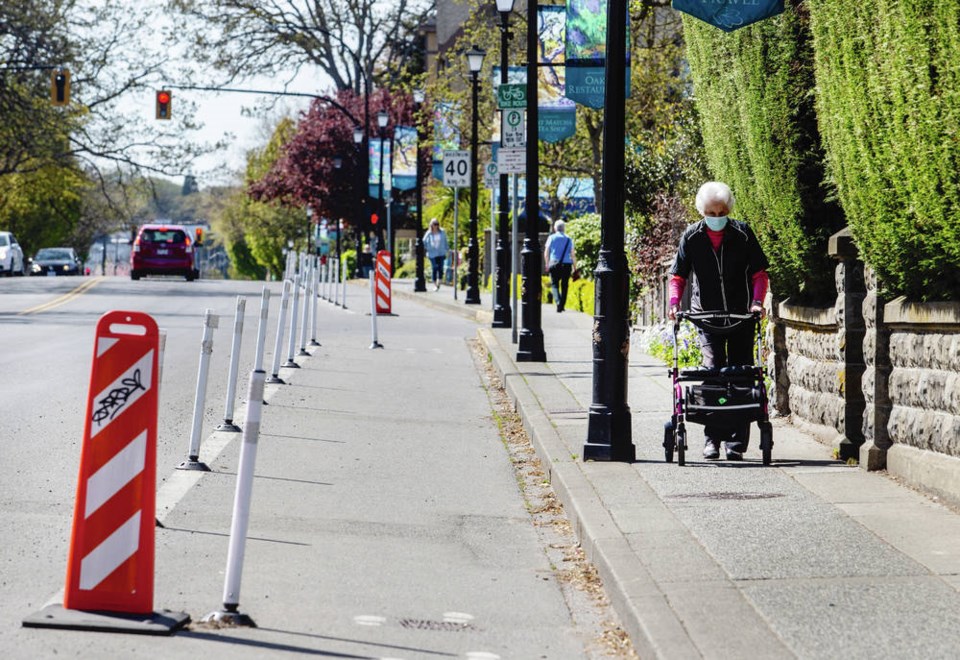As people around the world mark Earth Day today, the pandemic offers a lesson about what’s possible when people and decision makers agree to make significant changes, says a climate researcher.
The early months of the pandemic saw a drop in emissions as people stayed home, cutting down on driving and flying, and manufacturing slowed. Global lockdowns caused carbon dioxide emissions to decline by about 2.4 billion tonnes in 2020 — a record drop — according to researchers at the University of East Anglia and the University of Exeter in the U.K.
The impact is unlikely to last in a post-pandemic world, but it has demonstrated the impact of policy making and collective actions, said Hannah Teicher, a researcher in residence for the built environment at the Pacific Institute for Climate Solutions, based at the University of Victoria.
“If nothing else, it maybe helps to motivate people to see that we can make a change, and even in a short term, that there’s a real difference,” Teicher said. “I think that the biggest lesson for climate from COVID is just the impact that we can have when communities and governments come together and get behind our common goal, and that we actually really need to do something.”
The pandemic may bring some lasting cultural shifts that benefit the environment, like online meetings replacing business travel, but it won’t have a significant impact on mitigating climate change, she said.
“We just need to double down on all of the things that we already knew we needed to do,” Teicher said, adding that means prioritizing active transportation, public transit and electric vehicles, because transportation is responsible for the largest portion of emissions.
A significant rebound in carbon-dioxide emissions is predicted next year as people return to activities they’ve had to put off during the pandemic, said Robert Gifford, a professor of environmental studies at the University of Victoria.
“There’s little doubt of that, once people do start getting in their cars more and going back,” said Gifford, who is also a psychology professor at UVic.
The pandemic has also had some negative impacts on the environments, with increased deforestation in the Brazilian Amazon and more poaching in parts of Africa due to less oversight, he said.
In Victoria, Earth Day will be marked with free public transit for the day to encourage people to ditch their cars and ride the bus.
“Earth Day helps shine a spotlight on the importance of sustainability and encourages people to make choices that will help protect our environment. Choosing transit instead of driving is one easy way to take action,” B.C. Transit said in a statement.



